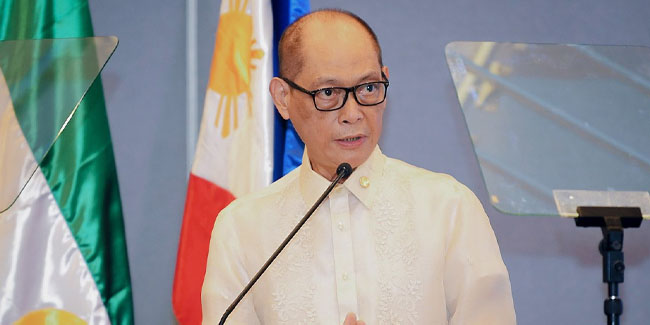Benjamin Diokno: “Ang pinakaimportante sa tax system, it should be fair at tsaka it should be perceived to be fair.”
BENJAMIN DIOKNO — The incoming Finance Secretary is looking into imposing the “correct” taxes for streaming service payments and other digital transactions as a way for the Philippine government to earn additional revenues.

Diokno, the current Bangko Sentral ng Pilipinas (BSP) Governor, made the remark amidst the huge debt incurred by the Philippines following its response to the coronavirus pandemic.
He said in the latest episode of “The Mangahas Interviews” that digital transactions had the tendency to “evade” imposing taxes unlike purchases made over-the-counter.
“Ang pinakaimportante sa tax system, it should be fair at tsaka it should be perceived to be fair,” Diokno told journalist Malou Mangahas. “Ang dapat perception ng tao lahat may tax-burden. Kailangan tayo magbayad ng buwis natin kasi maraming pinagkakagastusan na makakatulong din naman sa atin.”
According to Diokno, among those digital transactions are subscription-based services such as those on audio and video streaming.
To recall, the country’s current debt climbed to a record-high PHP 12.68 trillion as of end-March following the continuous borrowing efforts of the administration in order to boost the war chest against the coronavirus pandemic.
“Right now, kung nakaka-evade sya ng taxes, why not tax it? It’s a service. Sino naman nakakafford ng Netflix? Hindi naman mahihirap. They can afford it,” Diokno said.
The outgoing BSP chief assured that he would look into proposals to impose additional taxes, saying first focus on debt sustainability once he steps in as the next Finance Chief in the incoming Marcos administration.
READ ALSO: Benjamin Diokno Speaks On Being Chosen As Finance Secretary Of Bongbong Marcos
Aside from this, Diokno said that he has no objection to a law that would impose additional taxes on the wealthiest individuals in the Philippines, but stressed that it needs to be passed first by Congress.
According to him, calls for the proposed wealth tax have lingered but failed to hurdle the approval of the members of Congress.
“Naroon ang maraming mayaman at syempre, vested interest. Madali mo namang maimpluwensyahan ang some people. Why spend a lot of time? Konti lang ang oras sa isang admin eh, six years at konti lang ang administrasyon na nakakagawa ng tax reform,” he said when asked why he thinks it has failed to pass.
Thank you for visiting Newspapers.ph. You may express your reactions or thoughts in the comments section. Also, you may follow us on Facebook as well.
